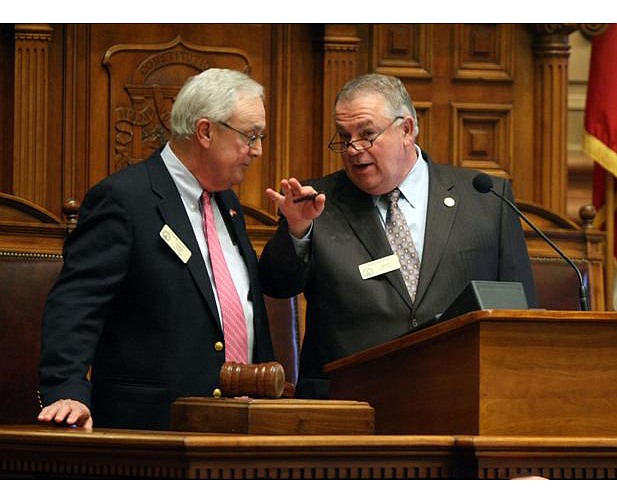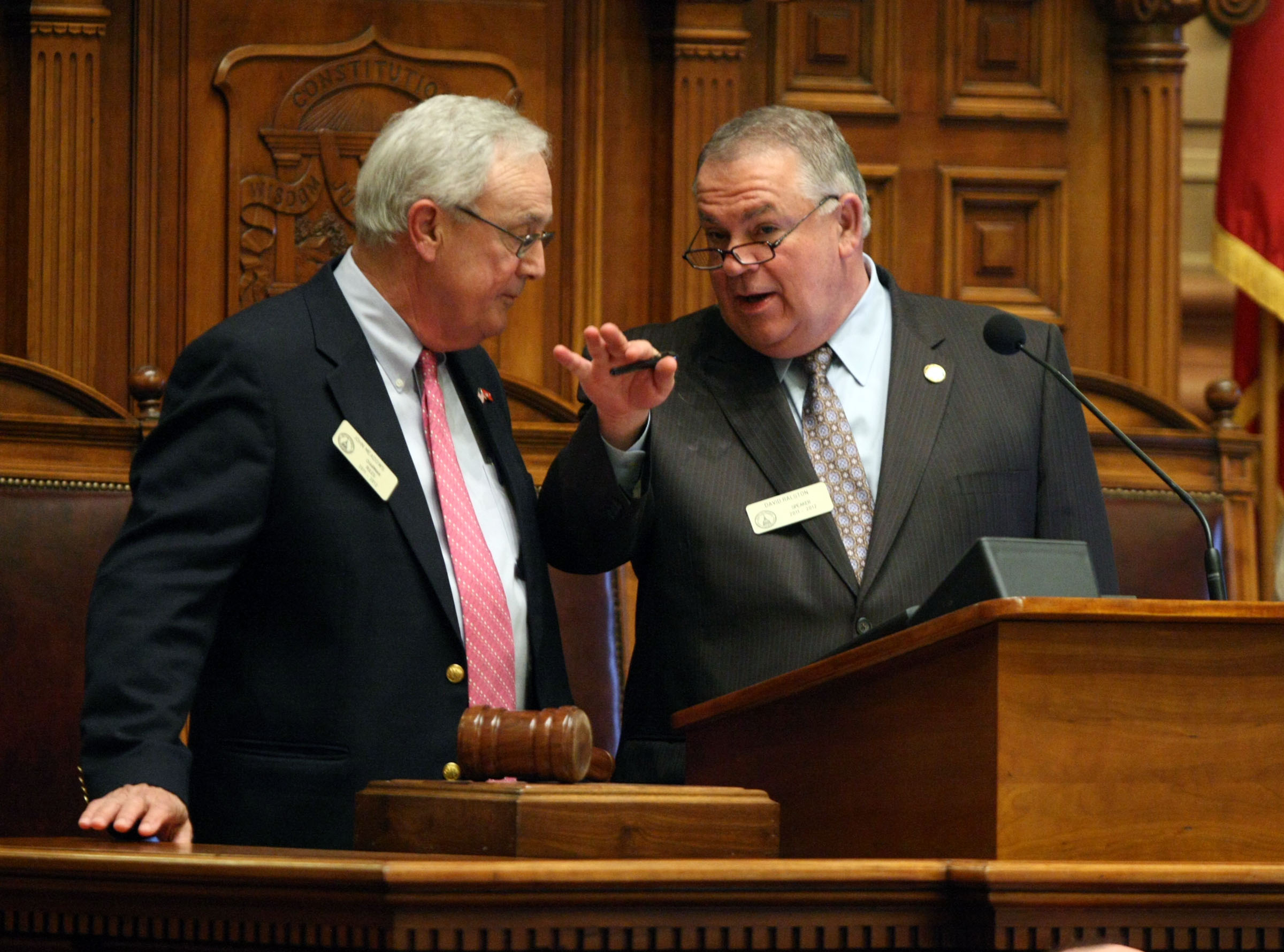ATLANTA - Georgia lawmakers will convene Jan. 14 with a familiar theme: a budget shortfall explained mostly by an economy that's not keeping pace with rising health care costs.
"The budget's going to be the number one thing," said John Meadows, R-Calhoun, chairman of the powerful House Rules Committee.
The single biggest variable is the Medicaid insurance program for the poor, most of them children. Medicaid already promises to be several hundred million dollars short of what it will need to continue existing services and payment rates in the fiscal year that begins July 1.
Even more pressing is an expiring hospital tax that yields about $650 million in state and federal cash. If that levy runs out with no replacement, the shortfall jumps to the neighborhood of $1 billion. Hospitals have presented Gov. Nathan Deal with a plan to extend the tax scheme with some modifications, but they could face some heavy lifting to get an increasingly conservative House and Senate on board.
Lots of concerns
Plenty of other issues are at play. There will be a range of gun bills in the wake of the December massacre at a Connecticut elementary school, from proposals to increase the presence of armed guards in schools to new limits on weaponry and ammunition. Lawmakers must settle details of how to evaluate Georgia public school teachers. Executive agencies will approach the session after a series of spending cuts that Deal ordered.
House member Tom Weldon, R-Ringgold, pledges to reintroduce legislation to control so-called "pill mills," or pain management clinics that overprescribe painkillers, contributing to abuse of the prescription medication.
"I'm resolved to get that bill passed," Weldon said. "I don't care whose name is on it."
He introduced pill mill legislation that passed the House and Senate in the last legislative session, but the law stalled after it went back to the House for tweaking and Deal never signed it.
Atlanta Falcons owner Arthur Blank needs legislative approval for the Georgia World Congress Center Authority to help him build a retractable roof stadium to succeed the Georgia Dome. Advocates of overhauling the criminal justice system have set their sights this year on the juvenile justice system.
And there's no shortage of pure political intrigue with expanding tea party ranks in Speaker David Ralston's House of Representatives; a Senate where Lt. Gov. Casey Cagle and other Republican leaders promise smooth sailing after GOP squabbling crippled the chamber last year; and weakened Democratic caucuses looking to find a toehold in either chamber.
Paying for medicaid
Yet nearly all of the questions in some way come back to money. And every decision within the budget hinges on Medicaid and the so-called hospital "bed tax" that expires June 30.
"It seems like everyone is waiting on a deal with the hospitals, then it will all flow from there," said Alan Essig, a longtime observer of state politics who leads the Georgia Budget and Policy Institute, an Atlanta think tank that advocates for active government.
The governor is at the center of the debate because Georgia law empowers him to set the official revenue estimates used to write the budget. Lawmakers can't legally call for spending more than the state is projected to take in. Deal is expected to submit his revenue estimate and proposed budget Jan. 17. He's otherwise been mum about his legislative agenda.
It is worth noting that the chambers settling the questions will be even more Republican than after the GOP sweep of 2010. Republicans are on the cusp of a two-thirds supermajority on both sides of the Capitol, a breakdown that could make for some riveting budget votes.
Jobs at stake
Deal consistently frames himself as austere, and he has shown no interest in raising broad-based taxes to deal with budget crunches. But Georgia Hospital Association executives say he's generally on board with the industry tax used to generate federal money for Medicaid.
"The hospitals, from what I understand, have gotten on the same page. So it might not be as controversial," Meadows said.
House Appropriations Chairman Terry England, R-Auburn, said he supports the concept, as well. But Republicans, besides the party's general anti-tax stance, are getting outside pressure from national GOP power broker Grover Norquist not to extend the tax.
GHA spokesman Kevin Bloye promises that lawmakers will hear from local hospital and business leaders about the threats to health jobs and medical care for Georgia citizens, including those not on Medicaid. That means some lawmakers may have to choose their preferred political risk: run for re-election with a tax hike on your record or run for re-election having gutted health care enterprises at the center of your local economy.
House Democratic Minority Leader Stacey Abrams, meanwhile, warned that Democrats won't help Ralston carry the tax vote in the House without "significant Republican votes." She said, "It's the job of the majority to govern. It's the job of the minority to collaborate where we can."
Ralston and Cagle have yet to announce any session agenda, with the exception of the speaker calling for an outright ban on lobbyist expenditures on lawmakers. Some Senate Republicans have called for a $100 cap. Georgia has no limit now.
Meadows expects the House and the Senate each will pass ethics legislation that will be melded together into a single law.
"People want us to do something, so we're going to do something," he said.
The session will be lawmakers' first since Georgia voters approved a constitutional amendment expanding the state's authority to create independent public charter schools. State Superintendent John Barge opposed that amendment, angering many of his fellow Republicans in the process.
The next push from school-choice advocates will be a "parent trigger" bill. Essentially, the idea is to let parents in a public school vote to convert their campus to an independent charter.
Barge sidestepped questions about gun laws, saying he "wants to reserve comment until I see actual legislation." He generally endorsed the idea of more school resource officers -- who are typically armed -- on campuses. He said the question is who pays.
Staff writer Tim Omarzu contributed to this story.

